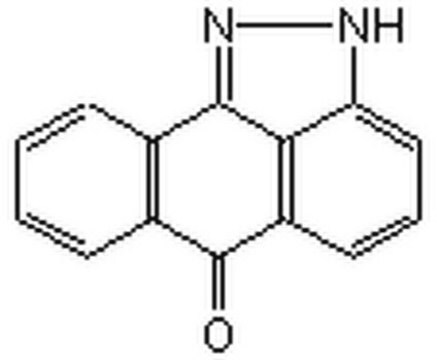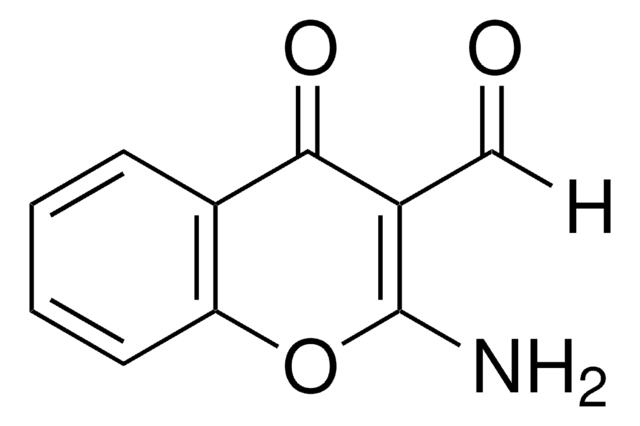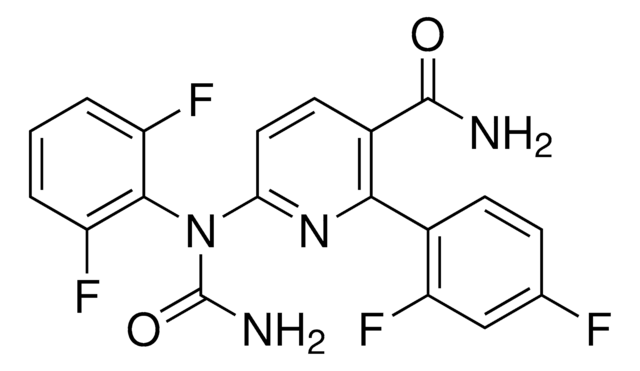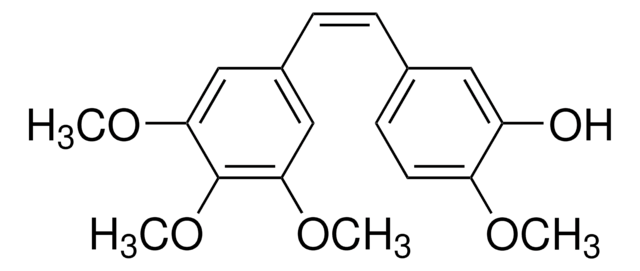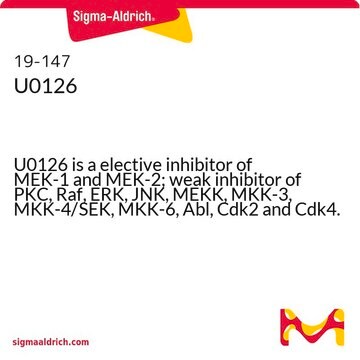SML0543
p38 MAP Kinase Inhibitor IV
≥98% (HPLC)
Sinónimos:
2,2′-Sulfonyl-bis-(3,4,6-trichlorophenol), B10, MT4
About This Item
Productos recomendados
Quality Level
assay
≥98% (HPLC)
form
powder
color
white to beige
solubility
DMSO: 5 mg/mL, clear (warmed)
storage temp.
2-8°C
InChI
1S/C12H4Cl6O4S/c13-3-1-5(15)9(19)11(7(3)17)23(21,22)12-8(18)4(14)2-6(16)10(12)20/h1-2,19-20H
InChI key
AKUKHICVNCCQHN-UHFFFAOYSA-N
Application
Biochem/physiol Actions
Features and Benefits
Storage Class
11 - Combustible Solids
wgk_germany
WGK 3
flash_point_f
Not applicable
flash_point_c
Not applicable
Certificados de análisis (COA)
Busque Certificados de análisis (COA) introduciendo el número de lote del producto. Los números de lote se encuentran en la etiqueta del producto después de las palabras «Lot» o «Batch»
¿Ya tiene este producto?
Encuentre la documentación para los productos que ha comprado recientemente en la Biblioteca de documentos.
Los clientes también vieron
Artículos
The mitogen-activated protein kinase (MAPK) family consists of stress-activated (SAPK) and MAPKs. Learn about their network of signal transduction cascades that mediate cellular responses to a diverse range of stimuli.
The mitogen-activated protein kinase (MAPK) family consists of stress-activated (SAPK) and MAPKs. Learn about their network of signal transduction cascades that mediate cellular responses to a diverse range of stimuli.
The mitogen-activated protein kinase (MAPK) family consists of stress-activated (SAPK) and MAPKs. Learn about their network of signal transduction cascades that mediate cellular responses to a diverse range of stimuli.
The mitogen-activated protein kinase (MAPK) family consists of stress-activated (SAPK) and MAPKs. Learn about their network of signal transduction cascades that mediate cellular responses to a diverse range of stimuli.
Nuestro equipo de científicos tiene experiencia en todas las áreas de investigación: Ciencias de la vida, Ciencia de los materiales, Síntesis química, Cromatografía, Analítica y muchas otras.
Póngase en contacto con el Servicio técnico

